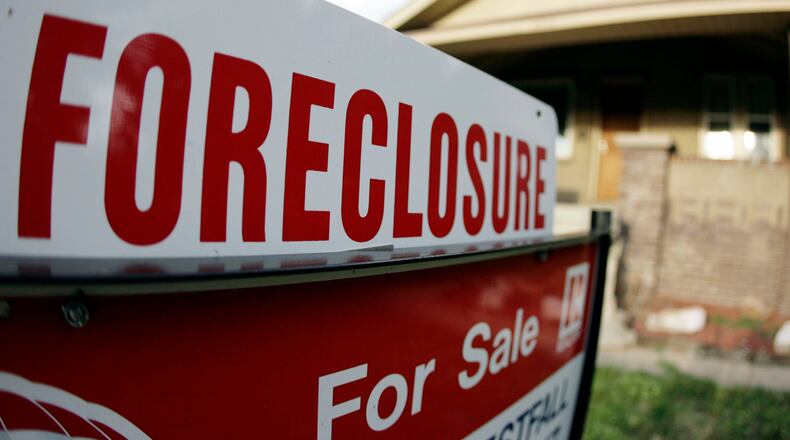RELATED: Federal lawsuit alleges housing discrimination in Dayton
The charge is that the defendants did not “provide routine exterior maintenance and marketing at Bank of America-owned homes in working- and middle-class African American and Latino neighborhoods in 37 metropolitan areas, while they consistently maintained similar bank-owned homes in comparable white neighborhoods.”
The lawsuit is supported by what the plaintiffs called “substantial photographic evidence” of “a glaring pattern of discriminatory conduct by Bank of America/Safeguard.”
Plaintiffs said they found evidence of poor exterior maintenance, overgrown grass and weeds, unsecured doors and windows, damaged steps and handrails, trash and debris, unsecured pools, graffiti, and even “dead animals decaying in yards.”
MORE: Combustion research brings in millions for Dayton companies
Plaintiffs said they investigated more than 1,600 Bank of America-owned homes in working- and middle-class white, African-American, and Latino neighborhoods.
“As owner of these homes, Bank of America is responsible for routine exterior maintenance on all of its properties,” the alliance said in its announcement of the suit.
The alliance announced similar suits again Deutsche Bank in February 2018 and against Fannie Mae in December 2016.
This suit was filed Tuesday in federal court in Maryland.
A spokeswoman for Bank of America said the bank has had issues with the alliance’s methods and approach.
“The allegations are without merit,” a statement from Bank of America said. “We apply uniform practices to the management and marketing of vacant bank-owned properties across the U.S., regardless of their location. Bank of America is committed to ensuring bank-owned properties are maintained in a quality manner, and to supporting the stabilization and revitalization of our neighborhoods. We monitor and review our vendors’ practices and procedures to ensure they are aligned with the bank’s policies.”
A representative of Safeguard Properties said the company had not been served with a complaint.
“Safeguard neither condones nor tolerates acts of discrimination or business practices that would unfairly target or neglect certain neighborhoods based on location and demographics,” that company said in a statement.
Jim McCarthy, president and chief executive of the Miami Valley Fair Housing Center, said in the center’s local housing investigation, 55 percent of Dayton homes in minority neighborhoods were found to have “10 or more” deficiencies.
The center investigated 39 local homes, 20 of which were in African-American neighborhoods. Homes in those latter neighborhoods were neglected to “a higher degree,” McCarthy said.
McCarthy wants Bank of America to “do a better job of working to maintain and market these properties.”
About the Author

